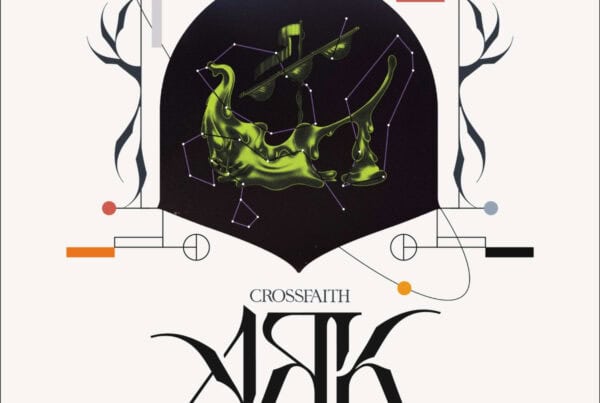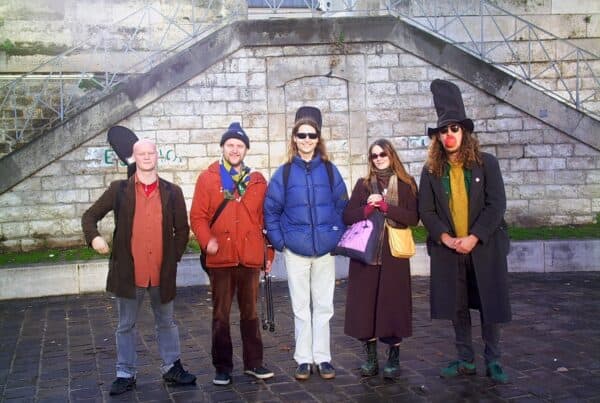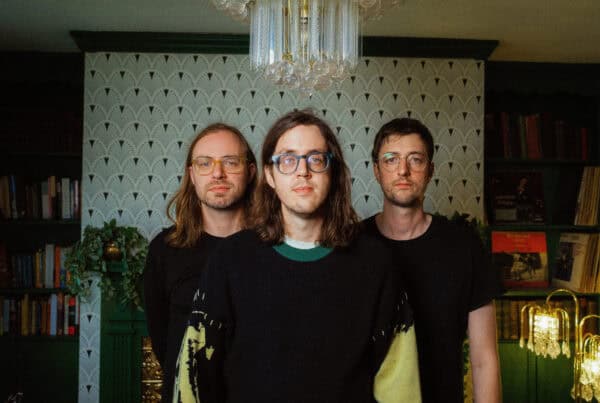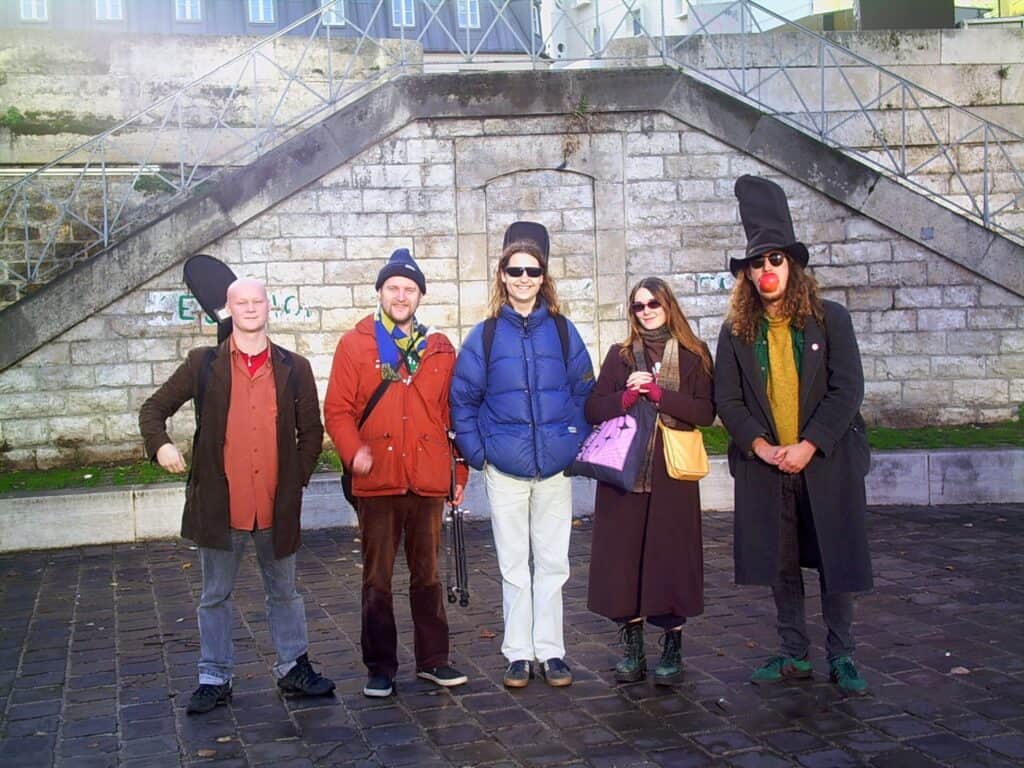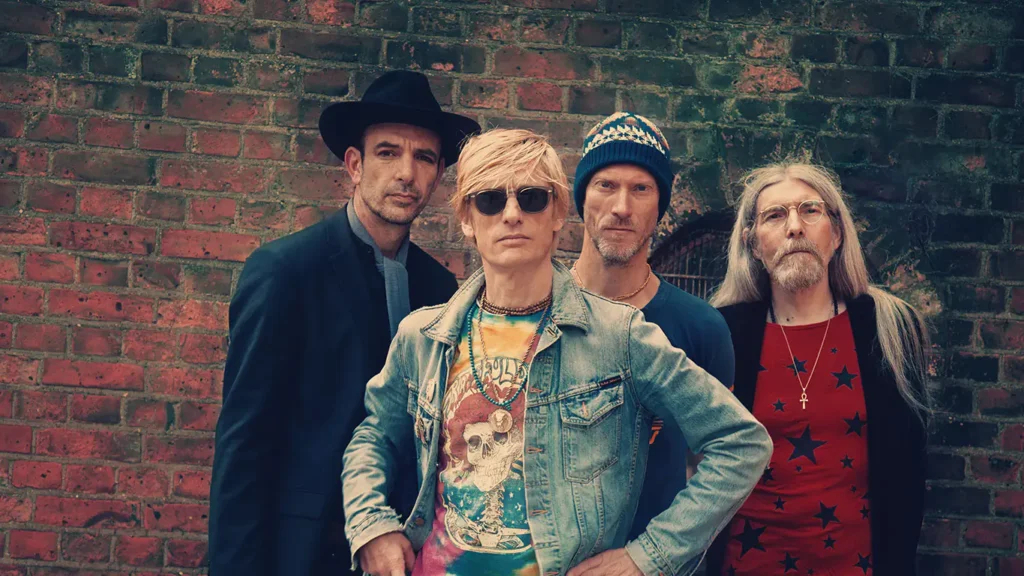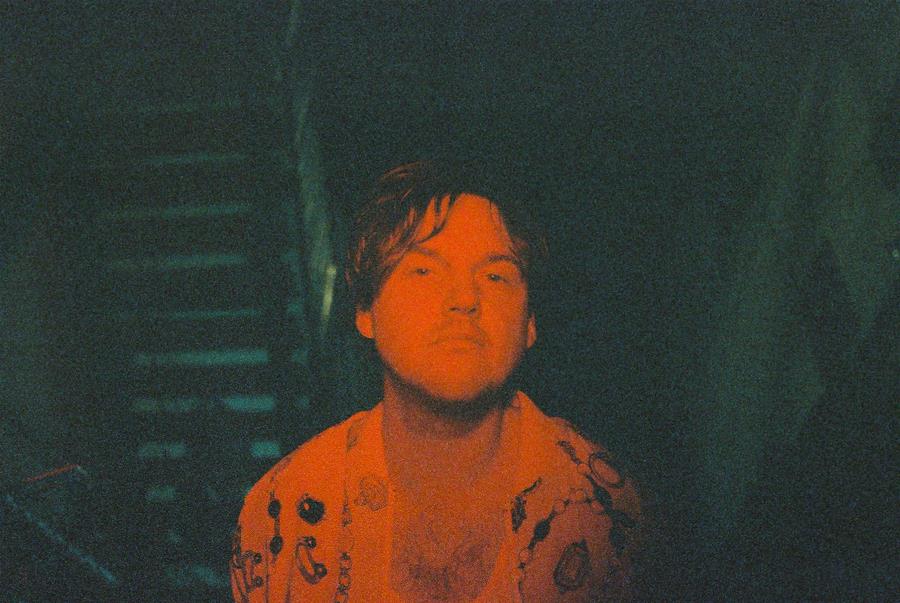From addiction and homelessness, to spontaneous trips to Thailand and record releasing, Kid Brunswick has had an eventful past couple of years. The West London songwriter made his debut last year with “FXCK YOU CAUSE YOU WERE THE ONE” and has just dropped a new track dripping with punk attitude.
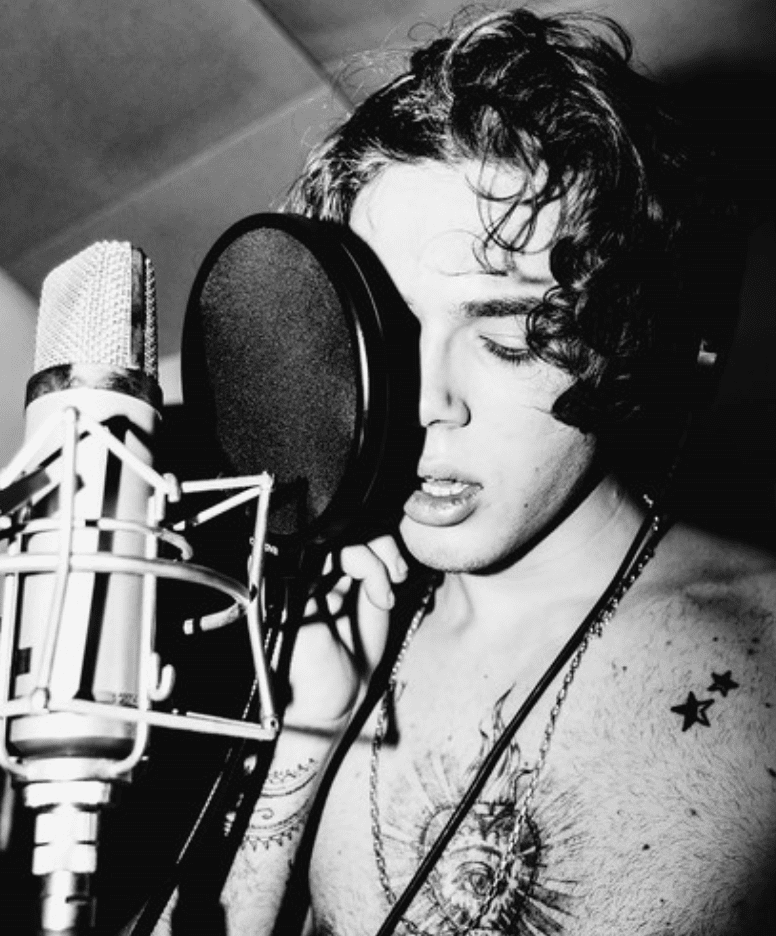
Also known as Harry James, the gritty grunger Kid Brunswick’s latest release, ‘Prescription Kid’, is moshpit material. White noise warps into heavy electric guitar riffs, then suddenly punctuated by a pounding trap beat. The distortion on the bass gives the song a harsher tone, serving to further ignite the youngster’s domineering vocals.
Born from desperation and dissatisfaction, the song was written upon Brunswick’s return to London normalcy after a spontaneous trip to Thailand. “I went fucking nuts dude,” he admits, “I went to Thailand by myself, I was getting so sick and tired of being in London addicted to drugs and not being able to feel any emotion. I was just like ‘fuck it.’”
Initially, he went for a spiritual experience, but it turned out to be a “massive boozefest and a load of magic mushrooms.” But the trip ended in a bad way: he lost money and possessions and he came home early ultimately pissed off. He recalls that, “this was around the time there were loads of school shootings happening in America.”
The latest release delves deep into the frustrations surrounding gun laws and overprescribing medications. Lyrically charged with angst and defiance, ‘Prescription Kid’ also drew inspiration from Kurt Cobain’s unconventional choice of writing from a perpetrator’s point of view, with Brunswick citing the Nirvana song ‘Polly’ for reference. Brunswick explains that Cobain motivates him to opt for jarring perspectives and give voice to the villain. The result? His interesting take of writing “from the [perspective of a] sort of fucked up kid who’s gonna shoot a school up.”
With ‘Prescription Kid’, Kid Brunswick addresses both “the guilty as charged person’s point of view” and the system which generates alienated, young people. Shining a harsh light on an uncaring system, he simultaneously exposes a parody of illusion in the west, where drugs (instead of compassion), are pushed on young people as a solution. Rippling under the rageful surface, his lyrics explore the dark depths of youth culture and the romanticising of harmful substances: “If we wanna be cool, we gotta make ourselves sick.” This drug culture is something Brunswick has personally battled with, prior to releasing ‘Prescription Kid’, he recently got out of rehab.
He confesses, “before that I was on and off being homeless, sleeping on floors, studio floors and those songs came from pure drug addiction, I couldn’t get a day sober since I was eleven. It was a pretty horrific time. Me getting sober has been the best thing, because I can now take a step back and see where I was, and how far I’ve come now. I couldn’t admit I had a drug problem; I couldn’t admit I was an alcoholic. I could only admit that when I was making music, I felt happy.”
Self-described as a ‘project of pain’, his 2019 album delves into his troubled past prior to sobriety. He discloses, “I was in a very abusive, physically, relationship with a girl and that’s what ‘Cold Sores’ was about. ‘Knowing No Better’ is about this girl that I knew that killed herself at a party. And ‘Nevermind’ is about this girl that I was in love with, who you know, she gave me [laughs], she gave me her Facebook login for some reason, I think we were setting up an account or something for one of our friends, we were gonna troll one of our mates. And she sent me her login and I found out that I was in love with this girl and that she’d basically been cheating on me this entire time.”
However, his heartbreak and trauma did not amount to simply withdrawing from life but rather the opposite: he became a living paradigm for the vast chaos he endured. He describes the recklessness of his late teens: “I was getting in car crashes. I was getting arrested. It was chaos and that’s what the project was about. I surround myself with chaos. Ever since being a kid I grew up in a very chaotic, abusive household, and that’s what I’ve been familiar with my whole life. So, going into my teens I started doing it myself, surrounding myself that sort of chaotic energy.”
We ask, how important the visual aspect is to his work and he stakes its value at 40%. “The music is one thing and speaks for itself,” he says. “Unless you have something that is attention-grabbing and eye-grabbing in this sort of age we live in, no one really gives a shit. It’s extremely important that represents you as an artist and makes you seem really interesting.
“My whole thing is that I’ve always loved skeletons, tattoos, weird graffiti… I’m really interested in street art and street culture.” He namedrops Banksy, Basquiat and Pollock as artists he grew up watching documentaries about. When explaining the reasoning behind his love for contemporary art, he says he found them really interesting because they were breaking the boundaries of what abstract art and street art was. “I love that, and I also love horror movies so if I can merge those two worlds together that’d be really cool.”
When discussing his influences outside of music Kid Brunswick shows a special interest in film. “I’m a huge Christopher Nolan fan,” he confesses. “I’m a huge Hans Zimmer fan. His soundtracks to films [are] what really moves me and that’s something I’m getting into. I’m actually about to make my first soundtrack for a little tv series in the next few weeks.” When asked what film he feels his music could soundtrack he chooses Old Boy (2013), an American neo-noir action thriller film directed by Spike Lee. “The amount of violence in that film and also sadness kind of explains my sort of upbringing,” he explains. “I was gonna say Kill Bill, but Tarantino is way too classy for me.”
Outside of music and film, Kid Brunswick enjoys gaming, honestly admitting that playing Warzone with his boys makes him “feel like a kid again.” However, it’s not all entertainment for this young artist; he selects a range of prominent public figures to push him to keep striving. He shares: “In terms of people I really aspire to, Travis Scott is one musically, just because of how much he’s achieved and how he’s created an entire culture. David Goggins is someone who can really get me out of the bed in the morning and calls me a bitch if I don’t get out of bed.” Brunswick even goes onto credit Instagram comedian Casey Frey with inspiring him.
However, one of his key motivators is his mentor and friend Jake Manson, from the production duo Blonde. “He was a huge DJ in his early twenties and then came back to London,” he elaborates. “As a weird joke, I call him my daddy. He hates it. He’s also an amazing producer and amazing mixer, he mixes all my records. He has so much knowledge and we’re both massive nerds in certain aspects. It’s a really great working relationship that we have.”
When we think of a successful musician, we often associate ‘success’ with sold-out world tours, mansions, chart-topping albums and a dedicated fan base. However, Kid Brunswick’s modest approach defies the capitalist norm of success, epitomising the authenticity of his punk attitude. His introspective attitude to success is rooted in the relationship he has with himself and others, frequently crediting his support network and family as guiding him to pursue music with humility. “Success isn’t defined by achievements with money,” he states, “Success, for me, is kind of just being able to live the life that you wanted and being happy within yourself, that’s pretty much all you can really ask for in life.”
Yet as with all artists, the possibility of financial success and its impact on ego, preys on this young artist’s mind. In spite of his current struggling financial situation and small discography, he strives to be grateful for what he has achieved so far: confidence in his own identity and a continuous desire to live happily and spiritually fulfilled. He says, “That, for me, is more success than earning loads of money and living in Los Angeles in a mansion. I feel like if I became a really big artist, I hope I wouldn’t lose sight of that.”
One of the factors he acknowledges as having a hand in ego and self-worth is social media. He fervently warns of social media’s reconstruction of perception and reality. We ask, how then does he separate himself from social media? “I guess the answer to that, is that it’s all fake,” he answers. “None of its real. So that’s someone’s own personal journey to go through. For self-help, the best thing to do is to get people to watch ‘The Social Dilemma’ on Netflix.” Despite the knowledge of how social media controls us being public information, Kid Brunswick acknowledges that hoping for it to fade is futile. “It’s a money-making machine, social media is never going to stop, it’s never going to go away. But your life will. Your time will. You shouldn’t be valuing your life based on a fucking internet website, you know?”
As a young artist in the modern day, he has experienced how social media can be monumental in achieving success – to the point it becomes all-consuming. Kid Brunswick defines the moment leisure time on your phone turns to addiction: “When your social media starts to control you as a human being that’s when you know you’ve got a fucking problem, but it can take a long time for you to wake up and realise that. Social media seems so harmless, but it really affects your mental health over a long period of time.”
So, what’s his advice to musicians striving for success in this tech and image-centred world?
“Figure out what you want to do and who you want to be. Then find yourself in a place where you can latch onto someone that has had more experience than you, that you really get on with – learn from them.”
Words: Jemima Mitra / Interview: Dom Smith / Image: Jake Osman

